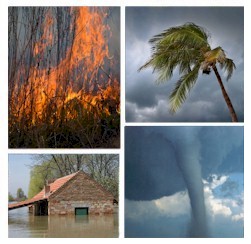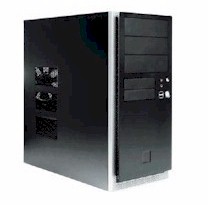|
|


Disaster Alert Systems
 This section of our technical library presents articles written about Emergency Alert Systems and Disaster Recovery definitions, terms and related information.
This section of our technical library presents articles written about Emergency Alert Systems and Disaster Recovery definitions, terms and related information.
The 911Broadcast emergency notification and alert service can deliver a large number of phone calls using a network of phone systems employing digital phone lines simultaneously. Should a disaster such as a snow storm, wild fire or flood hit your area, 911Broadcast systems can alert your community quickly providing specific instructions if an evacuation is required.
This service is available using our emergency broadcasting systems. If a dangerous chemical spill occurs in your community, you can target specific areas to call. If a severe snow storm hits your area, your community can be notified of school closings or event cancellations.
UN announces global disaster alert system
By Shaun Tandon, AFP
The United Nations announced yesterday it would set up a global system to predict disasters, but differences remained on whose technology would be used amid a rush of offers after Asia's tsunami tragedy.
UN agencies in a joint statement at a global conference in Kobe, Japan said the world body's experts would create a system to reduce the risk of disasters amid outrage that Indian Ocean nations had no warning when their coasts were battered last month.
"The new program will bring safety, security and peace of mind.
"Millions of people worldwide owe their lives and livelihood to effective early warning systems," said Salvano Briceno, director of the International Strategy for Disaster Reduction.
But the announcement was largely symbolic, with an official at the UN science agency UNESCO, which is spearheading the warning system project, acknowledging that more focused talks were needed.
"Right now we have several proposals which are completely uncoordinated by different countries.
"What we need to do is coordinate them," said Patricio Bernal, head of UNESCO's Intergovernmental Oceanographic Commission.
He said his group would hold two meetings within 60 days, with one in Paris in March and the other yet to be organised, in hopes of picking a tsunami system with which to move forward.
Bernal hoped a decision could be finalised at a meeting of his commission in July so work could begin and the system could be running by mid-2006, the target date set by UNESCO.
Bernal, asked whether all nations would agree to work together on the tsunami warning system, said, "At a technical level, yes."
On a political level "that could be a little more difficult", he said.
In another sign of politics entering the conference, the United States said it was trying to take out "multiple" references in the final declaration that referred to climate change.
The United States, which is at odds with much of the industrialised world by opposing the Kyoto protocol on global warming, believes there are "other venues" to discuss the controversy, State Department official Mark Lagon said, adding that Washington supported an early warning system. Lagon, along with UN experts and most delegates, stressed that a global warning system needed to take into account all potential disasters and not just tsunamis.
The Kobe conference is also expected to issue a set of goals to be met by 2015 to reduce the risks of all natural disasters, with UN relief chief Jan Egeland pushing the countries to set a faster timeframe.
Key donors have offered their own technology to monitor the Indian Ocean amid the outpouring of billions of dollars in aid following the tsunamis which killed more than 168,000 people.
Germany has said it would send out satellite linked buoys and set instruments below the water so its program could run quickly if chosen.
Germany boasted that its system, which has an initial cost of 20 million euros (AU$34.55 million), would be compatible with other technology. Japan, the United States and Australia have also offered their own systems to predict tsunamis, according to delegates in Kobe.
Michel Jarraud, head of the UN World Meteorological Organisation, voiced confidence that any hiccups in setting up the tsunami warning system would be cleared up.
"I think that what we see is natural that after a major disaster there is an enormous amount of goodwill," Jarraud said.
"There may be initially be bit of cooperation ... but I believe that afterward there will be more cooperation," he said.

Emergency Phone Dialers
DSC now offers an affordable and expandable emergency phone dialer and voice broadcasting (VB) analog phone system. This 4 line auto dialing system includes our voice message and broadcast Wizard software or comes optionally with our comprehensive software development toolkit.
You can program your own system or we can provide you with a custom message broadcasting application. These applications can be easily ported to our digital T1 phone system (PACER) when your call volume requires a larger system.
This entry level system can be easily expanded by adding agent lines and software to support a small response center including inbound emergency call handling and normal outbound dialing.
DSC provides voice broadcast software including our VB wizard development tool for creating custom phone applications. This wizard guides you through each step when defining your VB applications. Informational phone applications can be developed quickly. Simply record your phone prompts and fill in the blanks.
|
|
|




 This section of our technical library presents articles written about Emergency Alert Systems and Disaster Recovery definitions, terms and related information.
This section of our technical library presents articles written about Emergency Alert Systems and Disaster Recovery definitions, terms and related information.

